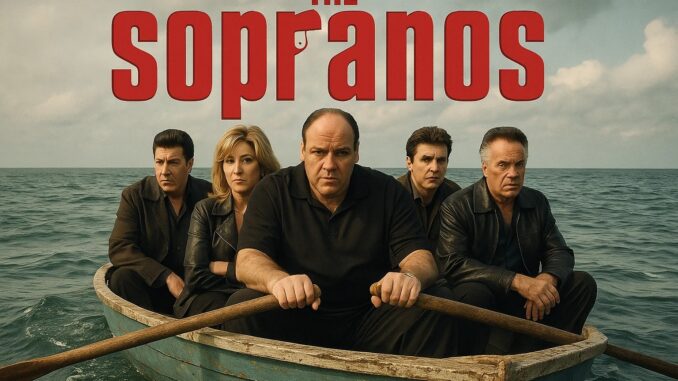
When The Sopranos premiered on HBO in 1999, few could have predicted just how much it would change television. What began as the story of a mob boss juggling his criminal empire and family life evolved into something much bigger—a revolution in storytelling that paved the way for today’s “golden age” of TV.
The Rise of the Anti-Hero
Before Tony Soprano, TV protagonists were expected to be likable, moral, and ultimately “good.” Tony shattered that mold. He was violent, manipulative, and deeply flawed, yet audiences couldn’t look away. Viewers rooted for him even when he made terrible decisions. Without Tony Soprano, there might not have been a Walter White (Breaking Bad), Don Draper (Mad Men), or even a Joe Goldberg (You).
Blurring the Line Between Cinema and TV
The Sopranos also brought a cinematic quality to the small screen. From its sharp writing to its visual style, the show looked and felt like a movie every week. It showed networks and streaming services that television could be just as ambitious and artistic as Hollywood films—sometimes even more so.
The Power of Ambiguity
Perhaps one of the most talked-about elements of The Sopranos is its ending. The abrupt cut to black sparked endless debate and continues to divide fans years later. But that open-ended conclusion set a new standard: TV didn’t have to tie everything up neatly. Stories could leave questions unanswered, and audiences would still be hooked.
A Blueprint for Prestige TV
Today, when we talk about prestige television, we’re really talking about the ripple effect of The Sopranos. Complex characters, morally gray storytelling, serialized plots, and high production values—all of it can be traced back to David Chase’s groundbreaking vision.
Final Thoughts
The Sopranos wasn’t just a hit show—it was a cultural reset. It challenged what television could be, elevated the medium, and gave birth to the era of ambitious, character-driven dramas we enjoy today. Twenty-five years later, its influence is still felt in every corner of the TV landscape.